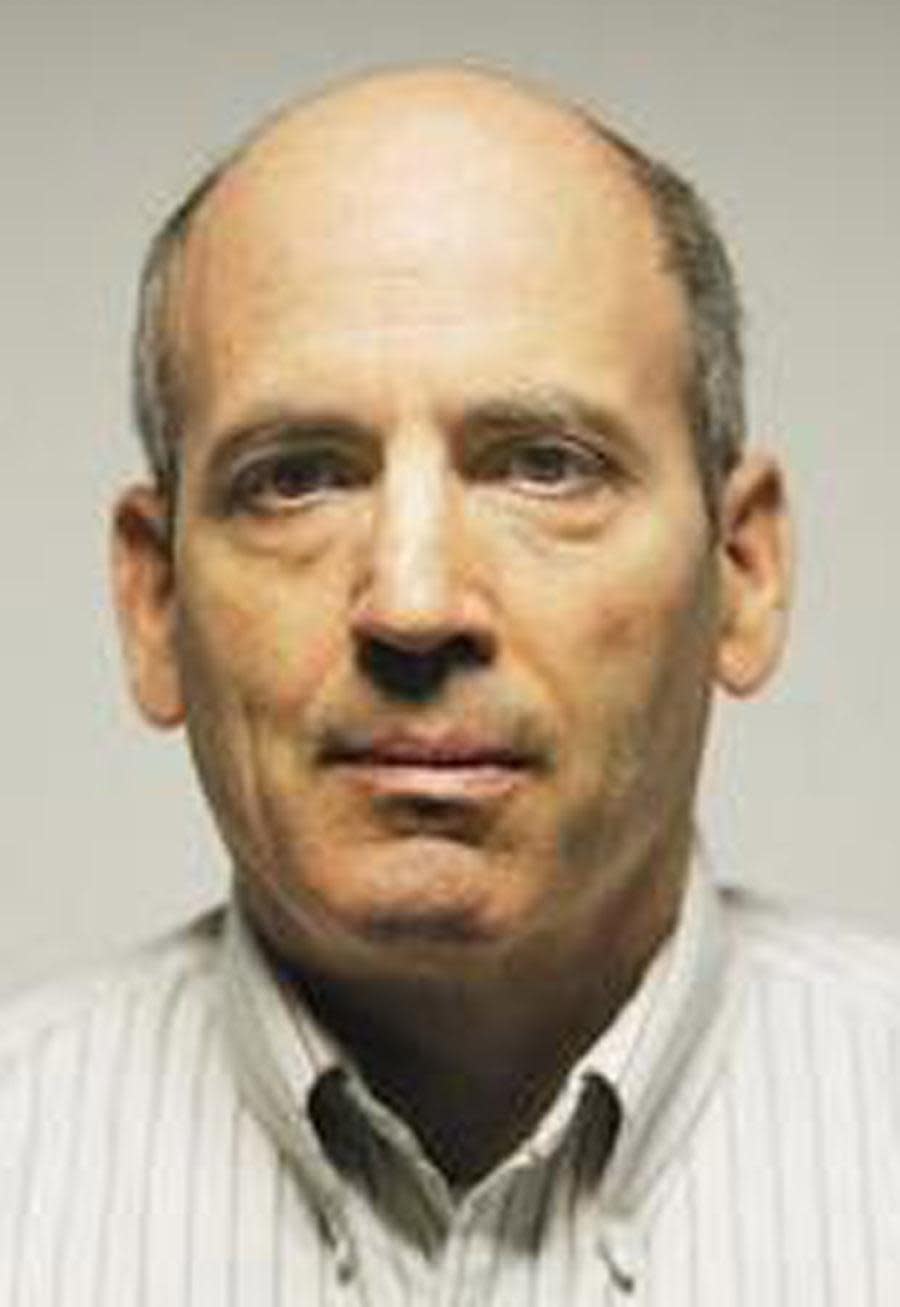Essay/Joel Freedman: A story of music, faith and courage

- Oops!Something went wrong.Please try again later.
Randy Travis is a country music singer, songwriter, guitarist and actor who, since 1985, has recorded 20 studio albums, charted over 50 singles on the Billboard Hot Country Songs charts, and earned 22 No. 1 hits. But Travis’ memoir, “Forever and Ever, Amen” (with Ken Abraham), is much more than an account by Travis of the ordeals and triumphs he experienced during his rise to fame. “Forever And Ever, Amen” is the inspiring story of a man who shows us how the better spirits of our nature can overcome challenges that may seem insurmountable. This book is available at Wood Library in Canandaigua.
On one of his visits to Walter Reed Hospital, Travis heard some of his own music wafting out of one of the soldiers’ hospital rooms. When Travis walked into the room, you can imagine the soldier’s surprise. The soldier had been talking with his girlfriend on the phone when he saw Travis enter.
Still on the phone, he said, “Honey, you aren’t gonna believe who just walked in here! He’s here. Right here, in my hospital room. It’s Randy Travis!” The soldier’s girlfriend must have thought he was joking, because he told her, “No kidding — he’s standing right here! Wait. I’ll give him the phone and you can talk with him.”
“Well, I, er, ah, I don’t know,” Travis stammered. “Mr. Travis ...,” he waved the phone toward him. “Just call me Randy,” Travis said. “Yes sir. Could you say hello to my fiancée?” After talking with her for nearly 30 minutes, Travis also enjoyed a conversation with the soldier, who “had a great smile and a fantastic attitude.” Travis had intended to encourage him, but it was the soldier who was inspiring Travis. Asked why he was in the hospital, the soldier replied, “Well, sir, I was in an armored personnel carrier coming into Baghdad and our chief had hooked up a CD player, so we were listening to some of your music. It was really hot inside the carrier, and some of the guys said, ‘Get us some cool air back here!’ So, I made a mistake and opened the back door, and the enemy blew a rocket-propelled grenade right up the back of the carrier, right where I was.”
Travis wrote: “Just then, the sheet came dislodged — I was shocked to see that both of the young soldier’s legs were gone. They’d been blown off.” Travis expressed his appreciation for the soldier’s sacrifice. “No, no, no, sir. Don’t start feeling sorry for me, Mr. Travis. I just have to change some of my priorities around. I’ll be OK.”
Travis writes, “I tried to control my emotions, but I lost it and couldn’t hold back my tears. I was so touched by the young soldier’s attitude. He displayed not a hint of self-pity. He had lost so much, but he was still alive and grateful for every day. I said a heartfelt goodbye to the soldier and stepped out into the hall, trying to regain my composure. Heroes have always been important to me, and I knew I had just met another one.”
The soldier had a tough road to travel. I’m sure his encounter with Travis helped to sustain him in his journey. I also believe the encounter would help to sustain Travis when he faced the greatest challenge of his own life. Travis would show the same kind of courage and gratitude that Travis admired about the wounded soldier.
Travis suffered a devastating viral cardiomyopathy that resulted in a massive stroke he was not expected to survive. Yet he not only survived, but with the help of many people, especially his devoted wife, Mary Davis-Travis, Travis learned to talk and walk again. When Travis was inducted into the Country Music Hall of Fame, Travis was still struggling to speak, so his wife spoke up for him. “I’ve been asked to take on the daunting task of being the voice for this man who so eloquently put words to melodies and made beautiful music for the world to enjoy.”
Travis’ album “Inspirational Journey” includes the classic version of “Amazing Grace,” a song written by John Newton in the 1700s. Newton, a former slave trader, had a spiritual transformation after finding Jesus. Travis explains that “God’s power, love and mercy turned Newton into a different quality of a person. I know that something like that had happened to me. God had changed my life for the better. So, singing the lyrics of that song has become a testimony for me — and an overwhelming, emotional experience every time I sing it.”
Three years after his stroke, when he was inducted into the Country Music Hall of Fame, after several weeks of practicing Travis was able to sing all four verses of “Amazing Grace.”
At a time when he was dependent on a wheelchair, Randy and Mary Travis visited the Oklahoma School for the Blind. “Ironically, they couldn’t see me and I could barely speak to them, yet we communicated pretty well with each other ... the kids all wanted their pictures with me. I reached out and hugged every one of them and they hugged me back. It was a tremendous, emotionally moving time.”
During his continuing recovery, Travis established the Randy Travis Foundation, which provides support for victims of stroke and cardiovascular diseases such as viral cardiomyopathy, as well as music, arts and educational programs for at-risk children.
Joel Freedman, of Canandaigua, is a frequent Messenger Post contributor.
This article originally appeared on MPNnow: Essay/Joel Freedman: A story of music, faith and courage

